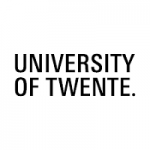项目介绍
About the course
The DPhil in International Development provides an opportunity for outstanding students to pursue in-depth multi- and interdisciplinary research, guided by leading scholars in the field, into processes of social, political and economic development and change in the global South.
Academics at the Oxford Department of International Development (ODID) can offer supervision in a wide range of subjects, including migration, refugees and humanitarianism; urban, agrarian and environmental development; political and social change and conflict; state-making and disciplinary regimes; public health and social policies; global governance, diplomatic studies, and security; economic growth and structural transformation; macroeconomics and public finance; firms and households; poverty and inequality; and technology. The department also has close connections with other departments and research centres across the University.
As a DPhil student you will undertake your own original research project under the guidance of your supervisor, with whom you will typically meet two to three times a term. The supervisor will help develop and guide your project and, at later stages, provide feedback on chapter drafts. However, you will work to a significant extent on your own, and you will need a high level of motivation and self-discipline.
During an initial probationary period as a Probationer Research Student (PRS), you will develop and begin work on your thesis topic. You will be offered training in relevant research methods, language, computing and other skills, and have the opportunity to attend lectures, seminars and classes in your general topic area. Full-time students are expected to be resident in Oxford for the PRS period.
As a PRS, you will also take one taught course, either in research methods or from an Oxford master’s degree relevant to your research, which will be examined. Full-time students usually transfer to full DPhil status by the end of their first year and part-time students usually transfer by the end of their second year.
Following satisfactory progress and transfer to full DPhil status, you may leave Oxford for up to three terms (six terms for part-time students) in order to conduct fieldwork, if the project requires. You will then continue the course by carrying out your own research under the guidance of your supervisor, with whom you will continue to meet or correspond with regularly. Full-time students should return to Oxford after fieldwork for at least three terms.
You will normally be expected to complete your degree in a period of three years (six years for part-time) plus up to one year (two years for part-time) of fieldwork (if needed). Students who transfer to the DPhil after the MPhil in Development Studies are expected to complete in two years (four years for part-time) plus time needed for fieldwork: they are also expected to be resident in Oxford for part of this time. Further information on the structure can be obtained from the course handbook available via the course page on the departmental website.
Applicants wishing to study part-time while in employment will be asked to provide a letter from their employer confirming that they are supportive of the study and are willing to release them from the workplace for study in Oxford, independent study and any fieldwork necessary for data collection. In addition, where appropriate, students will be required to obtain the written agreement from their employer for the use of their employer’s data in their research.
Supervision
The allocation of graduate supervision for this course is the responsibility of the Oxford Department of International Development and it is not always possible to accommodate the preferences of incoming graduate students to work with a particular member of staff. Under exceptional circumstances a supervisor may be found outside the Oxford Department of International Development normally in a co-supervision arrangement with an ODID supervisor.
In the case of students who require specific help to adjust to an academic programme or to a new range of skills, the supervisor will work with them to ensure that they have additional support.
The availability of supervision varies year on year and candidates are advised to review the list of eligible supervisors from the department’s webpage for the DPhil course to ensure their areas of interest are compatible.
Each student/supervisor relationship is different and the number of meetings varies, but generally, students are likely to meet with their supervisor two or three times per term.
Assessment
You will be admitted initially as a Probationer Research Student (PRS). At the end of your first year, you will be examined on one taught course (either in research methods or from an Oxford master’s degree relevant to your research). You must pass this course with a strong performance in order to transfer from PRS status to full DPhil status. You also need departmental approval of a fully developed research plan, which you will present in your transfer paper to two assessors approved by the department’s graduate studies committee. Full-time students present their transfer paper at the end of their first year and part-time students at the end of the second year.
Assessment of progress will be made during sessions with your supervisor and also in more formal viva voce assessments – for the Transfer of Status and for Confirmation of Status (usually at the end of the third year for full-time students and end of the sixth year for part-time students). More information on these two assessments can be found in the course handbook on the ODID website’s course page.
DPhil students submit their thesis for examination three to four years(or six to eight years for part-time) from the date of admissions and defend their thesis in a viva voce examination which takes place between the student and their two appointed examiners.
Graduate destinations
Graduates of the DPhil in International Development have a strong track record in developing academic careers in universities and research institutions across the world. The department’s alumni now hold positions at the Universities of Oxford, Cambridge, Edinburgh, Leicester, London (LSE and SOAS) and Sussex in the UK, and at the Australian National University, Jawaharlal Nehru University, Dartmouth College, the Frankfurt School of Finance and Management, and the Universities of Hong Kong, Johannesburg, Leiden, Leuven, Melbourne, Peru, Port Harcourt, Rome, Roskilde, York (Canada), the Western Cape (South Africa) and the Witwatersrand (South Africa) overseas, among other institutions.
Other former students have taken up influential positions in governments and major international institutions, including the World Bank and UN organisations such as UNCTAD and UNHCR, and in NGOs.
Read more about the kinds of careers the department’s students pursue on the ODID Alumni page.
“The DPhil taught me crucial skills and an approach to research that I draw on in my work today. I learnt how to speak across disciplines, to conduct multidisciplinary research and teach students from a range of educational backgrounds.” Anne Roemer-Mahler, completed 2009
Changes to this course and your supervision
The University will seek to deliver this course in accordance with the description set out in this course page. However, there may be situations in which it is desirable or necessary for the University to make changes in course provision, either before or after registration. The safety of students, staff and visitors is paramount and major changes to delivery or services may have to be made in circumstances of a pandemic (including Covid-19), epidemic or local health emergency. In addition, in certain circumstances, for example due to visa difficulties or because the health needs of students cannot be met, it may be necessary to make adjustments to course requirements for international study.
Where possible your academic supervisor will not change for the duration of your course. However, it may be necessary to assign a new academic supervisor during the course of study or before registration for reasons which might include illness, sabbatical leave, parental leave or change in employment.
For further information please see our page on changes to courses and the provisions of the student contract regarding changes to courses.
录取要求
-
a master’s degree with a distinction or a very high 2:1 in a relevant social science subject; and
-
a first-class or strong upper second-class undergraduate degree with honours in a relevant social science subject.
-
However, entrance is very competitive and most successful applicants have a first-class degree or the equivalent.
-
The master’s degree must be completed and a final transcript made available to the department by the end of August prior to the start of the DPhil.
联系方式
电话: +44 1865 270000相关项目推荐
KD博士实时收录全球顶尖院校的博士项目,总有一个项目等着你!






